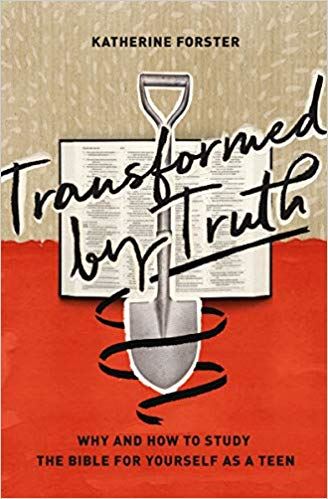
We are born procrastinators. I don’t mean teens, or millennials, or even those of us privileged to live in the Internet Age. I mean humans. All of us. We procrastinate on everything: schoolwork, prayer, Bible reading, texting a friend, those little tasks that need to get done but we don’t want to do. I procrastinated on writing this article. Maybe your reading it right now is a form of procrastination on something else.
Perhaps this habit of procrastination helps to explain something else: why we so rarely memorize the Bible. We know it’s important, maybe we did it as little kids because we were made to, and it’s not like we don’t love God and want to be in his Word. We just figure, “I’ll do that later.” There’s something else I’d rather do, or need to do, right now. But Bible memory is important right now, too. It’s especially important for teens, those of us who are in a season of life devoted to learning and growth.
If we’re going to grow into committed, Christlike followers of God, we need to be memorizing his Word. Here are just a few reasons why we should.
1. To Understand it Better
When we read a passage of Scripture, it’s easy to skim over the boring or difficult parts without paying much attention. But you can’t do that when you’re memorizing. When you memorize a passage of Scripture (a better approach, by the way, than memorizing isolated verses!), you must become intimately acquainted with every sentence and phrase. You’re not off the hook for any of those harder bits.
Memorizing Scripture forces you to think about the text. It’s part of the very nature of the process. In order to really plant the words in your mind, you have to at least make an attempt at understanding them. And that opens up opportunities to go deeper, to explore the passage even further with tools like cross references and commentaries.
2. To Connect the Dots
Over nine years of participating in the National Bible Bee Competition, I memorized literally thousands of verses. As I memorized more of the Bible, becoming more familiar with it, I noticed something else happening. I started to connect the dots. I’d be listening to my pastor, and I’d remember something from another verse I’d memorized that related to the passage he was preaching. I’d be reading a chapter of the Bible and remember a chapter elsewhere that added even more depth of understanding.
As you get more and more of the Bible into your mind and heart, you start to see how it all connects. The books and chapters of the Bible aren’t islands; they aren’t isolated, off to themselves. They’re all part of one big story, told by one Author. The same truths connect across the centuries and the different human authors that wrote the Scriptures we have today.
3. To Chew on It
Throughout the Bible, especially in the Psalms, we’re encouraged to meditate on God’s words. In other words, we should be thinking about them throughout the day, chewing on them, always going back to the truth we know about God.
I will meditate on Your precepts
And regard Your ways.
I shall delight in Your statutes;
I shall not forget Your word. (Psalm 119:15-16)
Sometimes I think we (myself included) are far too diligent to fill up every empty moment in our lives. If our minds aren’t occupied by school or work, we’re listening to music, scrolling through our phone, or finding some other way to occupy our minds—even just for a few minutes at a time. What if we chose to use those moments differently? What if we took them as opportunities to pray, to thank God, to meditate on his Word, or even just to be still for a few moments?
When I’m at work, it’s easy to just let my mind go blank or wander aimlessly, often ending up in less-than-edifying places. But I’m trying to change that. Occasionally (and not as often as I’d like), when I’m folding clothes or replacing shirts on hangers, I’ll bring my mind back to a passage of Scripture.
Usually it’s whatever passage I’m memorizing or currently thinking about. Sometimes it’s a psalm that I memorized years ago and never left. But because I have these verses, planted with such deep roots in my mind and heart, I can come back to them and allow them to point me toward Jesus—to “set [my] mind on the things above, not on the things that are on earth” (Colossians 3:2).
4. To Think Like Christ
When I participated in the National Bible Bee, success depended on the number of verses I had memorized. The more verses I could store in my head at one time, the better chance I had. Unfortunately, I tend to think about Bible memory this way even outside the competition. I tend to imagine that the point is to see how many verses I can keep “current” at the same time, as if my mind is a warehouse and Bible verses are my stock.
A while back, however, some words by author David Mathis started to change the way I thought about it. He writes,
When we memorize lines from the Bible, we are shaping our minds in the moment to mimic the structure and mind-set of the mind of God.... memorized Scripture molds our minds, with as much specificity as is humanly possible, to mimic the folds and creases in the mind of God. (Habits of Grace, page 68)
In Romans 12, Paul exhorts Christians to be “transformed by the renewing of your mind” (Romans 12:2). Part of this process is memorizing Scripture, learning to think God’s thoughts and let our minds work like his. God’s purpose for our lives as Christians is to be molded and conformed into the image of his Son, Jesus Christ—he who is the perfect image of the Father, God incarnate (Romans 8:29; Hebrews 1:3). Bible memory is not the only means of grace he uses for this purpose, but it is an important one.
Let us, as teenagers, make it our aim to be like Christ. Let us commit to doing the hard work of learning who God is and being made like him. It is a hard way, but it is the path to glory.

Photo credit: ©GettyImages/digitalskillet








